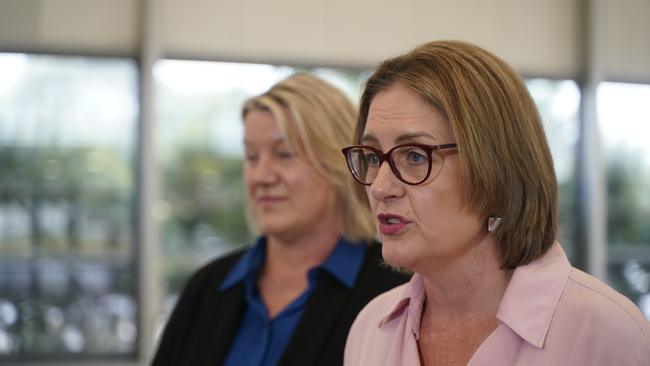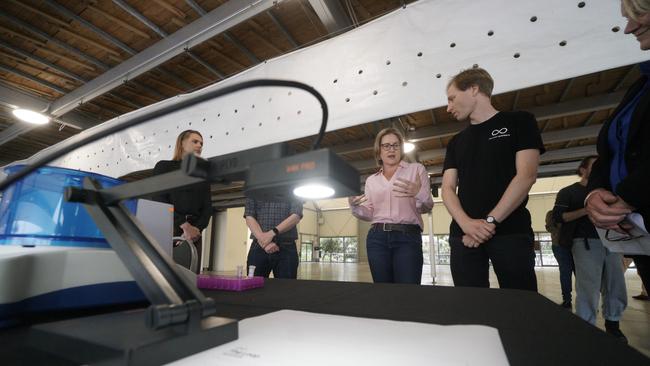Victoria’s pill testing trial to be launched at Beyond the Valley music festival
Victorian Premier Jacinta Allan says if a young person has a pill in their hands at a musical festival ‘they’re intending to use it’.
Beyond the Valley will be the first of 10 events in Victoria that will take part in the state’s pill testing trial, with an estimated 35,000 attendees at this year’s festival able to check their drugs and get results in minutes.
The popular musical festival, at Barunah Plains from December 28 to January 1, will host mobile pill testing services that can test the makeup of most pills, powders, crystals or liquids and identify harmful chemicals that can lead to death.
It is expected the trial will take place at five festivals this summer, and a further five next summer, with a fixed pill testing site to be established by mid-2025 in inner Melbourne.
Victorian Premier Jacinta Allan said the trial is not about deciding whether Victoria will implement pill testing, but instead about understanding “how to implement it”.
The four-day festival will be the largest event in Australia to provide access to pill testing.
“We know that pill testing saves lives, we also know that no drug is safe. But we know that if a young person has a pill in their hand, they’re at a music festival, they’re intending to use it,” Ms Allan said on Sunday.
“Young people are also entitled to have access to health-focused supportive advice about what is in that pill, and then get the health advice that can be then wrapped around that young person.
“It also works in a way that is providing no judgment, just providing young people particularly with honest, open facts.”

The service will be delivered by Youth Support and Advocacy Service in partnership with The Loop Australia and Harm Reduction Victoria.
The Loop chief executive officer Cameron Francis explained the advanced technology that will be used at BTV “can detect anything”.
“We’re able to explain the risks of substance use to people, we can tell them what the signs of overdose might be and where to go to get support in case something does go wrong,” he said.
The organisation he runs is comprised of chemists, health workers and researchers who also deliver drug checking services in Queensland and New South Wales.
“Our results from Queensland have been really strong. We’ve been really consistently able to get about a quarter of people tell us that they’ll use a lower dose of drugs after talking to one of our health professionals,” Mr Francis said.

“We get around 15-16 per cent of people disposing of their drugs as well after they’ve spoken to us.”
He said that MDMA is the biggest concern during the summer, and that the mobile sites would operate across all days of the festival.
It is expected the services will be made available between 1pm and 7pm but Mr Francis said “if we have to stay back, we’ll stay back”.




To join the conversation, please log in. Don't have an account? Register
Join the conversation, you are commenting as Logout